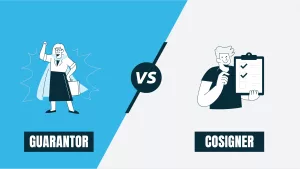Escalation Clause in real estate
Go Back To Previous PageAn escalation clause is a provision in a real estate transaction that allows buyers to make their offers more competitive when considering multiple offers. This clause permits a buyer to automatically increase their offer price to outbid other potential buyers up to a specified maximum limit. Here’s a detailed explanation of how an escalation clause works, its components, and its pros and cons:
What Is An Escalation Clause in real estate?
A real estate escalation clause, or an escalator clause, is a provision within a contract that enables potential buyers to increase their offers if another buyer submits a higher offer.
How an Escalation Clause Works
- Initial Offer: The buyer makes an initial offer on the property.
- Automatic Increase: The clause states that if another buyer submits a higher offer, the original buyer’s offer will automatically increase by a predetermined amount above
 the competing offer.
the competing offer. - Cap: The clause includes a maximum price (cap) the buyer is willing to pay, ensuring the offer does not exceed this limit.
How To Write an Escalation Clause
Start with the initial purchase price offer. Write details on increments. Include your maximum sale price.
1. Start With the Initial Purchase Price Offer
A real estate escalation clause should always begin with the initial offer. This includes the offer’s purchase price and any other terms and contingencies. For instance, offering $500,000 for the home would be your initial offer in the clause.
2. Write Details on Escalation Increments
Another important aspect is the specific increments that the offer will increase by. For instance, your offer may increase by $10,000, $25,000, or $50,000. The amount of the increase is your choice and typically depends on the price of the home.
It would be best if you also decided how the increase will affect the sale. To prevent the seller from falsely claiming they have received a higher offer, you should request evidence of any other offers that surpass yours.
3. Include Your Maximum Purchase Price
Your escalation clause should include your maximum purchase price. If you’re financing the home, consider your lender’s pre-approval amount. For instance, if you’re willing to pay up to $550,000 for the home, your escalation clause should state that this is your maximum purchase price.
Example
For instance, let’s say you’ve found your dream home and made an offer of $300,000. The contract includes an escalation clause, which allows you to outbid any subsequent offer higher than yours by increments of $5,000, up to a maximum of $320,000. If no other offers are made, your original offer of $300,000 stands.
However, if another buyer, let’s call him John, puts in an offer of $305,000, your escalation clause enables you to beat his offer as per the terms of your contract, raising your bid to $310,000. In this scenario, if the bidding stops there, your offer would be the most attractive for the home.
Let’s consider a scenario where Bill makes an offer of $325,000. In this case, it would limit your bid to a maximum of $320,000. Since Bill’s offer exceeds your escalation clause limit, he would have the top offer, and you would lose the bid for the house.
Pros and Cons
Pros
- Enhances Competitiveness: Makes the buyer’s offer more competitive in a hot market with multiple offers.
- Simplicity: Eliminates the need for the buyer to constantly adjust their offer in response to other bids.
- Transparency: Provides a precise and automatic mechanism for increasing the offer.
Cons
- Reveals Willingness to Pay: It discloses to the seller the maximum price the buyer is willing to pay, which can disadvantage the buyer during negotiations.
- May Discourage Sellers: Some sellers may prefer straightforward offers and be deterred by the complexity.
- Verification Requirements: The seller must provide proof of competing offers, which can sometimes lead to contentious situations.
When To Use a Real Estate Escalation Clause
An escalation clause is usually used when a home or property is lovely to a buyer or in high demand in the market. If multiple prospective buyers are interested in the same property, including an escalation clause in your contract might be a good idea to improve your chances of securing the sale. As a buyer, showing your commitment to the deal can also be valuable.
Is an Escalation Clause a Good Idea?
If you genuinely desire a property, using an escalation clause is advisable. It can help you prevail in a potential bidding war and demonstrate to the seller how committed you are to purchasing it.
Including an escalation clause may not always be a good idea. It should only be added if the buyer or their real estate agent is confident there will be multiple competitive offers on the house. This is because its inclusion can weaken the power of negotiations. The clause communicates to the seller the level of interest in the property and the maximum amount the buyer is willing to pay for it.
If no additional offers are made on a home, but an escalation clause has been included in the contract, the original offer still stands. However, the seller may counteroffer because the escalation clause has made them aware that the buyer is willing to pay more to purchase the home.
Real Estate Escalation Clause Tips
It is important to note that the decision to accept an escalation clause is entirely up to the seller. Sometimes, sellers prefer that buyers submit their initial offers without including an escalation clause. This could be because sellers want to avoid the confusion and extra time it takes to process multiple offers. However, under the right circumstances, escalation clauses can greatly benefit sellers, as they almost always ensure they receive their home’s highest purchase price.
Buyers who include escalation clauses clearly state the maximum amount they are willing to offer for a home.
For example, your initial offer remains if your initial bid is $410,000 with an escalation clause allowing you to counter-bid up to $430,000 and no other bids.
However, by including the escalation clause, you’re indicating to the seller that you can and are willing to pay $20,000 more than your offer. This allows the seller to make a counteroffer, knowing you can afford to pay more. If you decide not to accept the counteroffer, you risk losing the home as the seller may choose to keep the house on the market in hopes of receiving a better offer.
Therefore, it’s essential to carefully consider whether including an escalation clause is necessary before automatically doing so.
Bottom Line
An escalation clause can be a powerful tool in a competitive real estate market. It allows buyers to automatically increase their offers to outbid other potential buyers, simplifying the bidding process and increasing the chances of securing the property.
However, buyers should be aware of possible drawbacks, such as revealing their willingness to pay and possibly deterring some sellers. It’s always advisable to consult with a real estate professional to determine whether it suits your situation.


